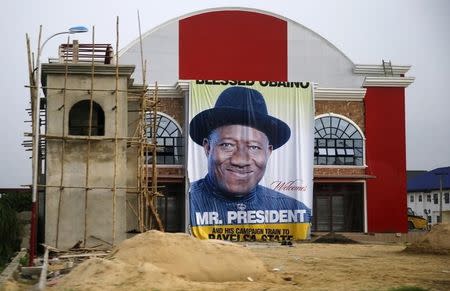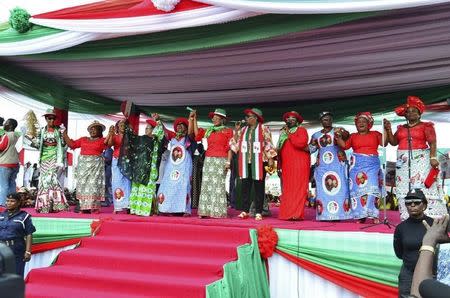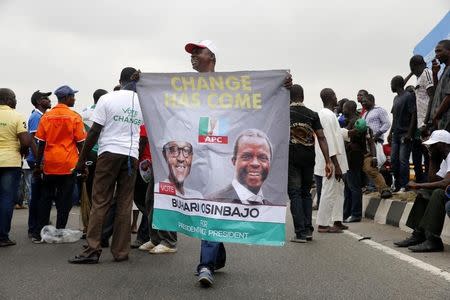Nigeria's presidential candidates sign new peace appeal
By Felix Onuah and Julia Payne ABUJA (Reuters) - Nigeria's main presidential candidates have signed a "peace accord" ahead of hotly contested elections on Saturday in an effort to prevent religious or ethnic violence, the government said on Thursday. President Goodluck Jonathan is running against former military ruler Muhammadu Buhari in what looks set to be the closest presidential race since military rule ended in 1999. "Now that the campaigns have come to an end, we meet today to renew our pledge for peaceful elections. We therefore call on all fellow citizens of our dear country, and our party supporters, to refrain from violence," said the emailed statement, which was signed by the candidates. In 2011, around 800 people died in Nigeria in post-election violence and Western powers have been pressing both sides not to stoke tensions, with U.S. President Barack Obama issuing a direct appeal for calm this week. It was the second such accord signed by the election candidates this year, following an initial document released in January. At that stage, elections were set for Feb. 14, but the vote was subsequently delayed to March 28 because of violence tied to an insurgency by Boko Haram Islamist militants. Diplomats are especially concerned by the possibility of violence in Bayelsa state should local candidate Jonathan lose his bid for re-election. The region suffered years of tumult, including attacks on oil infrastructure, with calm only restored following the successful implementation of an amnesty brokered in 2009 with leaders of the Movement for the Emancipation of the Niger Delta. Obama earlier this week called on "leaders and candidates to make it clear to their supporters that violence has no place in democratic elections, and that they will not incite, support or engage in any kind of violence". In a letter to Jonathan, British Prime Minister David Cameron also called for transparent and violence-free elections. "As Africa’s biggest democracy, successful elections in Nigeria are important not only for Nigeria's future, but as a signal to the rest of Africa," Cameron was quoted as saying by the British embassy in Abuja on Thursday. The embassy added that Cameron was would give a multinational African force 5 million pounds ($7.4 million) to tackle the Boko Haram insurgency in the northeast. (Writing by Julia Payne; editing by John Stonestreet and Crispian Balmer)

 Yahoo News
Yahoo News 


